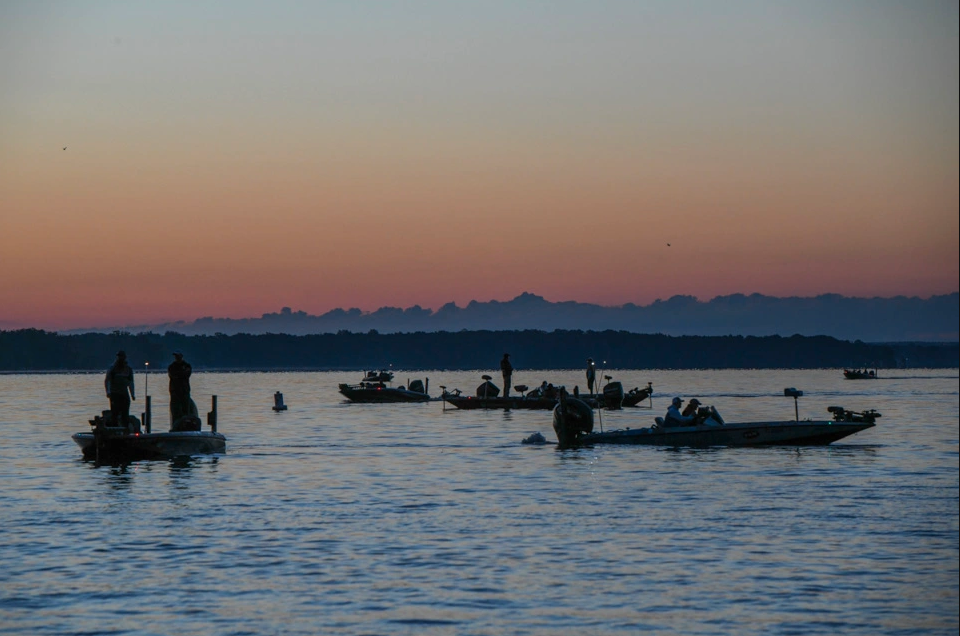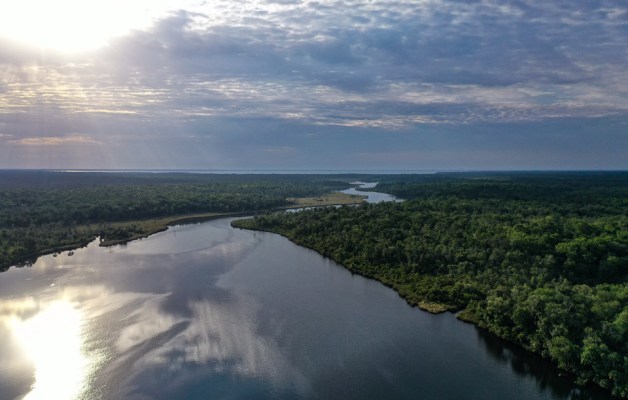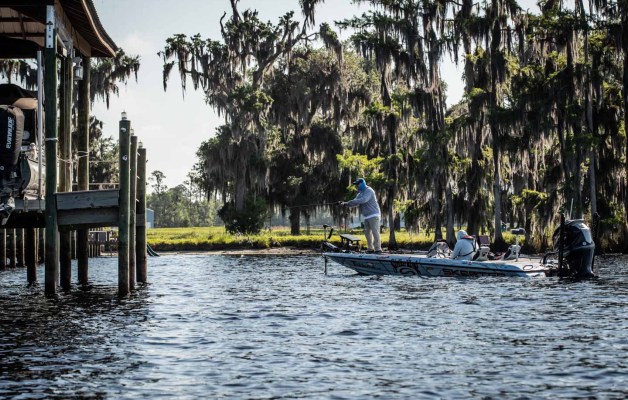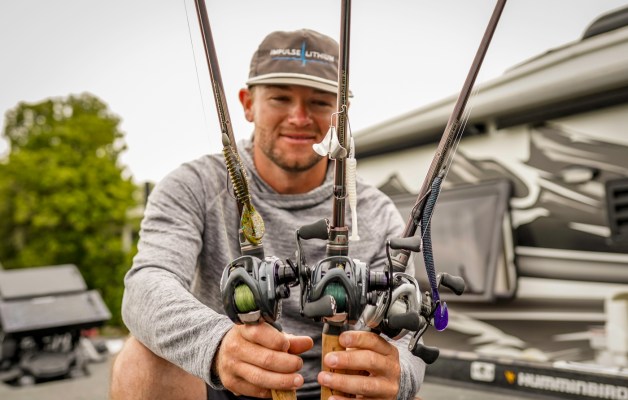
As we sat in the boatyard prior to launch on Day 2 of the 2005 Bassmaster Classic in Pittsburgh, it quickly became apparent that there were too many media members who wanted to go for a ride. Forty seven anglers going out in matching boats, but at least 50 newspapermen and magazine writers were ready for action. I was paired with Rick Clunn, but some overeager media staffer had assigned Aaron Martens not one but two size XL writers.
“Don’t let them do that to you,” Clunn cautioned the young pro. I thought maybe it was a Norma Rae moment, some form of standing up against the man. Instead, Clunn had purely practical reasons for the objection: “It’s going to cost you 15 or 20 casts over the course of the day.”
In the end, things were settled, and Martens only had to contend with one writer that day. He finished second to Kevin VanDam, his third runner-up finish in four years. VanDam beat him by 6 ounces, less than what one more keeper would have weighed.
Overburdened by media or not, what could Martens have gained from just a few more casts?
I thought of this over a recent weekend as I watched Bassmaster LIVE and heard Davy Hite repeatedly talk about how much Taku Ito’s smallmouth-fighting strategies have changed over the past couple of years. Early in his career, he quickly became good at fooling them, but getting them in the boat was a different matter.
Fights that would’ve taken Ito five minutes, 10 minutes or more in prior seasons now take him a fraction of that amount, with no loss in effectiveness. Whether that’s on the St. Lawrence, where ounces make a huge difference, or Oahe, where catching individual fish can be a chore, that provides him with more casts … and more time to succeed.
Yes, the best anglers are better at finding fish than the rest of us. They may be better at casting, or with their electronics too, but the biggest differentiator among their ranks is efficiency. To see a guy like Ito, who is still honing his game, getting better by the minute is scary.
To see young guns like Patrick Walters and Drew Cook and Jay Przekurat entering the field having the process down pat undermines the now-antiquated notion of a three-year or five-year learning process. They’ll all continue to learn, but the starting block is so much further forward than it was even a decade ago.
Of course, efficiency does not necessarily equal speed. You might be able to get to a defined hotspot before anyone else in the field by driving wide open, but if crashing through the waves to accomplish that breaks your trolling motor and half of your rods, it probably defeats the purpose of the effort.
You can make more casts than your competitors too, but if they’re not in the right place, or you go fast when the fish want slow, it is counterproductive. That’s why guys like Martens and Clunn and Kennedy who don’t necessarily fit the mold of the typical pro enjoyed extended success. They knew what worked for them in terms of time and brain management, even if it seemed odd to the rest of us.
Indeed, while there are more aids to making good use of time than ever before – from shallow-water anchors to Spot Lock – the most critical part of the equation continues to come from an angler’s gray matter. Most tournament wins, or would-have-been wins, come down to a few key decisions, and usually in some way they’re related to time management.
If you’re 50 miles away from the launch and your forward facing sonar doesn’t work, do you spend the time to go back and get it fixed or replaced, or do you stay and fish without it? When do you pull up stakes on a once-promising spot, and when do you commit for the long haul? For that matter, how long of a run is too long to be viable?
There’s no one-size-fits-all answer to any of these hypotheticals. They vary with the waters, with the seasons, and most notably according to the angler who has to make them. When an angler like Austin Felix finally breaks through with a win, and makes it look fairly easy in the process, it’s not because he’s on autopilot, but rather because years of muscle memory have taught him the proper path of least resistance.
Things are hard enough out there already – getting better and experiencing success comes down to eliminating extra weight in the boat and between the ears.





